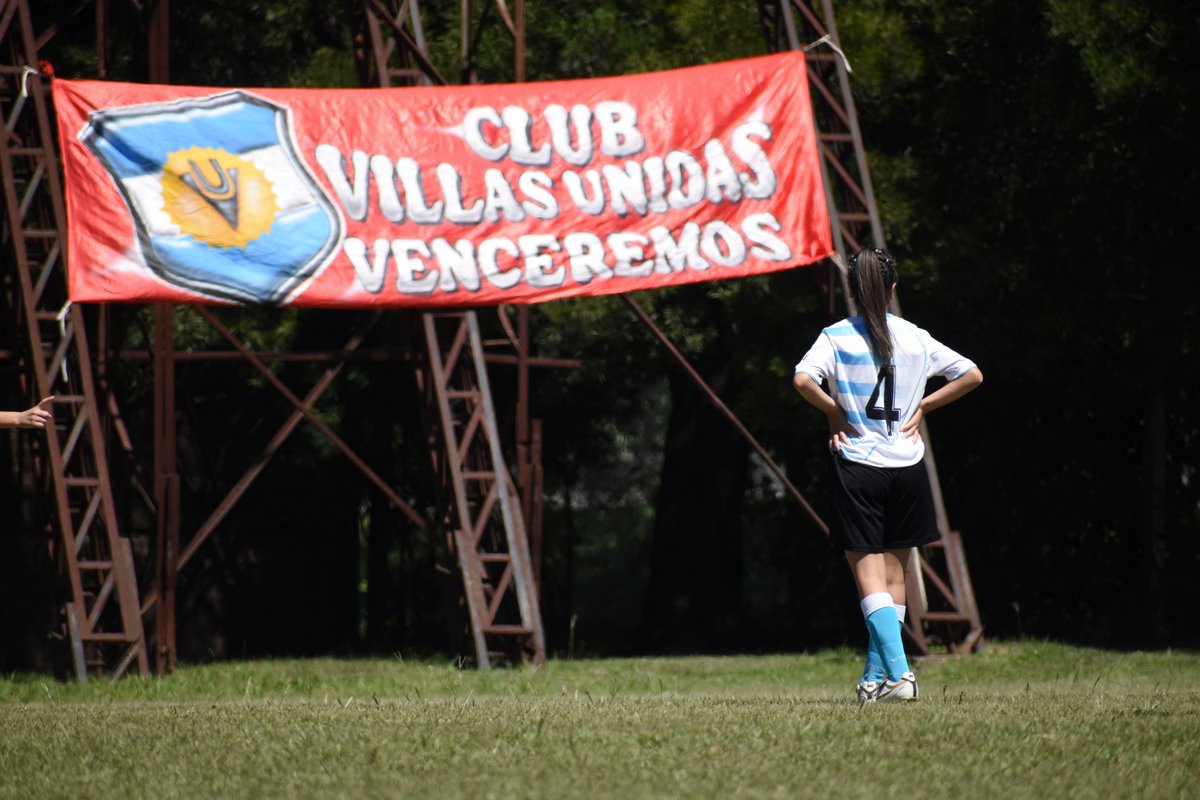RIO DE JANEIRO, BRAZIL – The brainchild of former physical trainer of Diego Maradona and the Argentine national team, Fernando Signorini, created by social organizations and supported by world champion coach César Luis Menotti, Club Villas Unidas, which competes in the third division of women’s soccer, is the Argentine team that represents working-class neighborhoods and fights for social inclusion.
Read also: Check out our coverage on Argentina
Villas Unidas was born in 2018 and the following year began competing in the Third Division of women’s soccer thanks to an invitation from the Argentine Football Association (AFA).

“We try to nurture players who come mostly from popular neighborhoods. Club Villas Unidas is different in several ways from the other teams we compete within AFA’s First Division C. The first thing is that it is not an affiliated club, but receives an invitation to participate,” Gustavo Levine, coach of the women’s team, told Efe minutes before training began at a sports center in Buenos Aires.
Villas Unidas, as Levine explained, was an idea of Signorini, a man “always attentive to see what social issues are to be addressed”.
“The ‘teach’ observed that big profits are generated around male players who have emerged from many popular neighborhoods and that all that business that is generated and all that money that is earned around those boys finally does not return to the neighborhoods where they emerged from. He came up with the idea of having a club dedicated purely and exclusively to players from poor neighborhoods,” said Levine.
“Signorini passed on the idea to Cesar Luis Menotti’s coaching school, and the school contacted a group of social organizations in our country, and that is where the idea of creating a club that seeks to bring the income back to the neighborhoods came from,” he added.
From the board of directors, it was decided to first compete in women’s soccer and then move forward in children’s soccer.
“Men’s first division soccer we still don’t have because it would be too big a maelstrom and the club wanted to start from the bottom. The men’s children’s soccer pandemic did not allow it to develop and we are coming back little by little,” said Levine.
The coach proudly recounted that one player, Peruvian Adriana Arteaga Vilca, was called up to the U-20 national team of her native country.
“We work, train and try to do everything possible to achieve promotion because we believe that the higher the club is at the top, the more visibility it will have and the more we will reach the popular neighborhoods. The idea is that the eleven players who take the field wearing the Villas Unidas jersey will be the mirror in which many other girls, young women, and women from the poor neighborhoods and shantytowns will see themselves and that they will want to come and be part of this”, she pointed out.
However, this club is not only focused on sports. It is also focused on trying to solve various problems faced by the players. Bárbara Corte, one of the team’s players, is 38 years old, is a social worker, and highlighted the work the club does for social inclusion.
“Because of my militancy and my work as a social worker, I learned about the Villas Unidas project. I loved it as a social project, I was very interested and I went to a more political, institutional meeting to learn about the experience and talk about social work, give opinions on what could be done. I did not think there was women’s soccer. They told me about it and I said: ‘Hey, can I go and try it out? I changed course, I went and stayed in Villas,” she told Efe minutes before joining the training.
“Villas Unidas was created by a very strong group of social organizations that focus on social inclusion through sports, not just words,” she remarked.
Corte explained that this club is concerned about educational completion, health issues such as access to social security, nutrition, and employment opportunities, among other issues.
“What the club has done is to analyze the income transfer policies that exist in Argentina and to accompany each of the families or the girls themselves in order to be able to receive this income policy. For example, thanks to being in Villas Unidas, they are able to receive one of the social programs, Potenciar Trabajo,” she said.
“Many times it is difficult to sustain the spaces that we like, that give us joy, that give us pleasure, because there is another part of life that is very difficult if you do not have a job, if you do not have someone to take care of the children, if you have gender violence. There has to be a bench to be able to support what gives us joy, which is to be here on the court,” she said.
Corte and other players are taking a course to become technical directors, financed by the club. Other players are taking a diploma course in socio-community sports or are finishing high school.
“We recently signed a first agreement with the Ministry of Justice Access to Justice Centers to address various issues with interdisciplinary teams of lawyers, psychologists and social workers. Villas is a pioneer, but all the clubs should have a social action body linked to all these problems in order to work on them,” she concluded.

